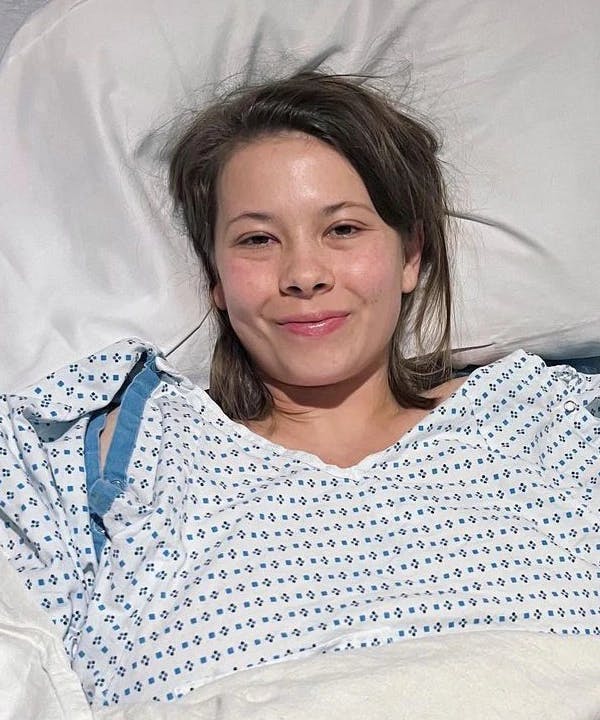Bindi Irwin Reveals She Had Surgery For Endometriosis And Talks About The "Insurmountable Pain" She Has Endured Over The Last 10 Years
Bindi Irwin, daughter of famous TV personality Steve Irwin, opened up about her long battle with endometriosis over the last 10 years. She shared a picture of herself in the hospital after undergoing a surgery.

Australian Bindi Irwin, 24, is Steve Irwin's oldest child and followed in his footsteps to become a conservationist and TV personality. She married American Chandler Powell in 2020, and they have one daughter together. Her Instagram page is full of photos of her family, her work with animals, and glimpses of her personal life. But on Tuesday, she shared something she had never shared before: She has been battling endometriosis and has just undergone surgery to treat it. It has been a painful road for her, but she is grateful for the care she has received and decided to share her story to encourage other women who are also battling this disorder.
Bindi Irwin Reveals She Had Surgery for Endometriosis
Bindi's followers are used to seeing her outside with animals or caring for her young daughter. Many were surprised to see her latest picture featured her in a hospital bed. She wrote a long caption about her struggles with endometriosis, a disease where tissue similar to the lining of the uterus grows outside the uterus, revealing that she just underwent surgery to treat the condition. She said she "battled for a long time" wondering if she should share details of her struggle. But she feels it's her responsibility to be honest so that other women with endometriosis are encouraged to reach out for help if they need it.
"For 10yrs I’ve struggled with insurmountable fatigue, pain & nausea," she said. "Trying to remain a positive person & hide the pain has been a very long road. These last 10yrs have included many tests, doctors visits, scans, etc."
One doctor told her that it was just something she would have to live with, so she "gave up entirely, trying to function through the pain." Finally, a friend helped to set her on the right path to receive the care she needed.
"I decided to undergo surgery for endometriosis," she shared. "Going in for surgery was scary but I knew I couldn’t live like I was. Every part of my life was getting torn apart because of the pain. To cut a long story short, they found 37 lesions, some very deep & difficult to remove, & a chocolate cyst."
A chocolate cyst is a noncancerous, fluid-filled cyst that usually forms deep within the ovaries. It can occur when endometrial tissue forms sacs on the ovaries. Bindi shares that her doctor asked her after the surgery, "How did you live with this much pain?" She was validated for the first time in years, and this felt "indescribable." Bindi thanked her family and friends who have stayed by her side during this decade-long journey and for encouraging her to find the answers even when she felt like giving up.
"I’m on the road to recovery & the gratitude I feel is overwhelming," she continued. "To those questioning the cancelled plans, unanswered messages & absence - I had been pouring every ounce of the energy I had left into our daughter & family."
"Things may look fine on the outside looking in through the window of someone’s life, however, that is not always the case," she added. "Please be gentle & pause before asking me (or any woman) when we’ll be having more children. After all that my body has gone through, I feel tremendously grateful that we have our gorgeous daughter. She feels like our family’s miracle."
Bindi concludes the caption by encouraging women with endometriosis pain to keep looking for answers, and to know that they deserve help and care.
Endometriosis can cause infertility and chronic pain, and roughly 10% of women in their reproductive years suffer from it around the world. In the U.S., it's estimated that more than 11% of women between the ages of 15 and 44 suffer from endometriosis; this disease makes it harder for women to get pregnant and can affect nearby organs, such as the bladder and intestines. The tissue that grows outside the uterus can even envelop the ovaries and Fallopian tubes if left untreated.